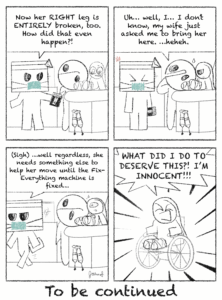Commentators around the NFL have been speculating that the read-option, when quarterbacks have the option either run or pass on any play, will soon lose its popularity among coaches. One commonly cited reason is that defensive players are becoming more patient, another being that dual threat quarterbacks suffer too much wear and tear. The latter reason is the more important, especially since the creation of a new NFL rule that states that quarterbacks who are standing near their running back when running an option play are eligible to be hit as if they were a running back, which may lead to more legal hits to the knees and head.
The assertion that defenses are learning to be more patient and thus will be able to render the read-option ineffective is ludicrous. It is still working just fine in both fast and medium paced offenses, where the defense either becomes disoriented or simply loses patience.
An example of this is Oakland Raiders quarterback Terrelle Pryor, who rushed for 112 yards on 13 carries in week one and 50 yards on nine carries in week two. In the second game, Pryor made a big play using an option play and then running back Darren McFadden followed that play up with an even bigger play when the Jacksonville Jaguars defense bit on the option play.
Another example is Philadelphia Eagles quarterback Michael Vick, who is running the read-option under new coach Chip Kelly. Kelly runs an up-tempo offense that utilizes running back LeSean McCoy and Vick. In week one, Vick ran for 54 yards and a touchdown, though he did leave limping. He still, however, managed to pick up 23 yards on the ground in week two, although McCoy wasn’t as efficient.
The fact that the Eagles used the read-option in week two, despite Vick’s minor injury in week one, shows that they are willing to risk the health of their quarterback. The case of Robert Griffin III, the Washington Redskins quarterback who tore his ACL last year, has some coaches scared to expose their quarterback to too many hits. Kelly knows that Vick can handle it, though. If he couldn’t, he wouldn’t have been able to post six 500-plus rushing yard seasons since 2002. But what if Vick is finally injured so badly he can’t return?
A good strategy that coaches may choose to use in the future may be to draft or hire multiple dual threat quarterbacks that are more affordable than Griffin and Vick, who earn $5 million and $7 million, respectively. The Raiders are a good example of this, as Pryor only earns $600,000 per year on average. If they wanted, the Raiders could hire a speedy quarterback like Josh Johnson or Dennis Dixon or Pat White to back up Pryor, and it would only cost somewhere around $500,000 per year.
At the start of this season, Green Bay Packers linebacker Clay Matthews said he was “going to take shots on the quarterback.” He held to his word and delivered a late hit on San Francisco 49ers quarterback Colin Kaepernick as he scrambled out of bounds in week one. In week two, Kaepernick didn’t cower behind his offensive line, but instead ran 9 times for 87 yards. The point I’m trying to make is this: the decline of the read-option is probably not going to happen any time soon. Coaches like it because running backs benefit from it and it makes picking up first downs easier. Coaches also don’t have to worry about injuries as much as many analysts think, as there are many affordable dual threat backups just waiting to be picked up by teams that need them.
Ondo is a member of
the class of 2014.

